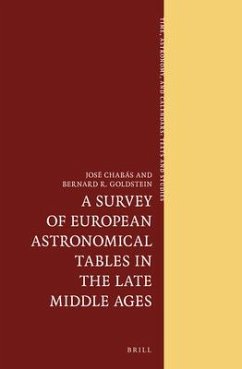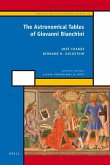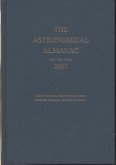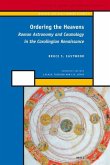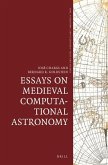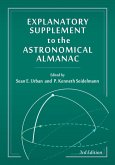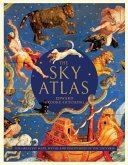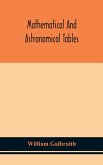"A Survey of European Astronomical Tables in the Late Middle Ages" is a first attempt to classify and illustrate the numerous astronomical tables compiled from about the 10th century to the early 16th century in the Latin West. The compilation of astronomical tables was a major and dynamic intellectual enterprise. These tables respond to a wide variety of astronomical problems and computational needs, and contain a large number of ingenious solutions proposed by astronomers over the centuries. In the absence of algebraic notation and mathematical graphing techniques, a table was often the best way to transmit precise information to the reader. Indeed, an astronomical table is not a just a list of data, but a structured way to present numerical information of astronomical interest.
Hinweis: Dieser Artikel kann nur an eine deutsche Lieferadresse ausgeliefert werden.
Hinweis: Dieser Artikel kann nur an eine deutsche Lieferadresse ausgeliefert werden.

